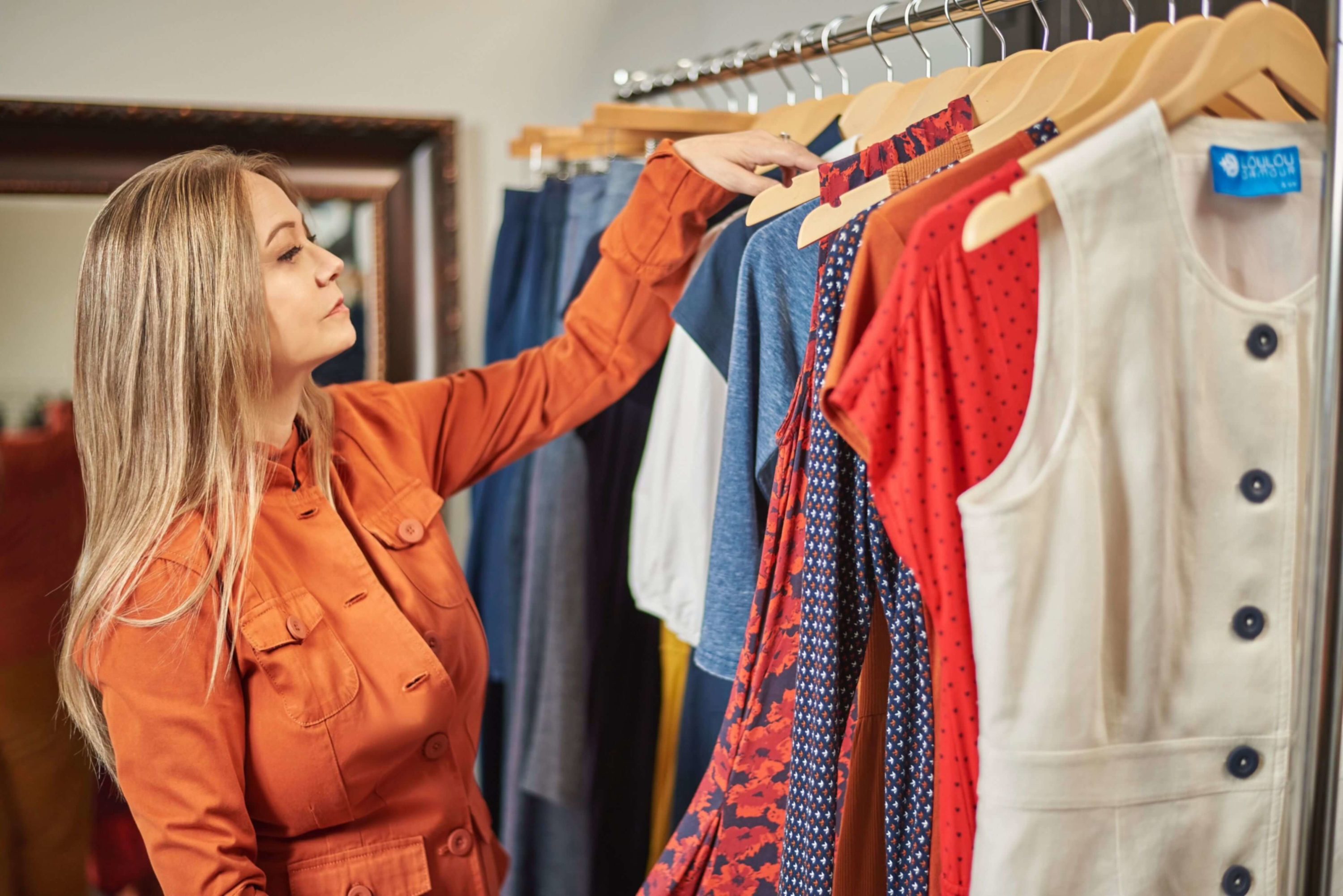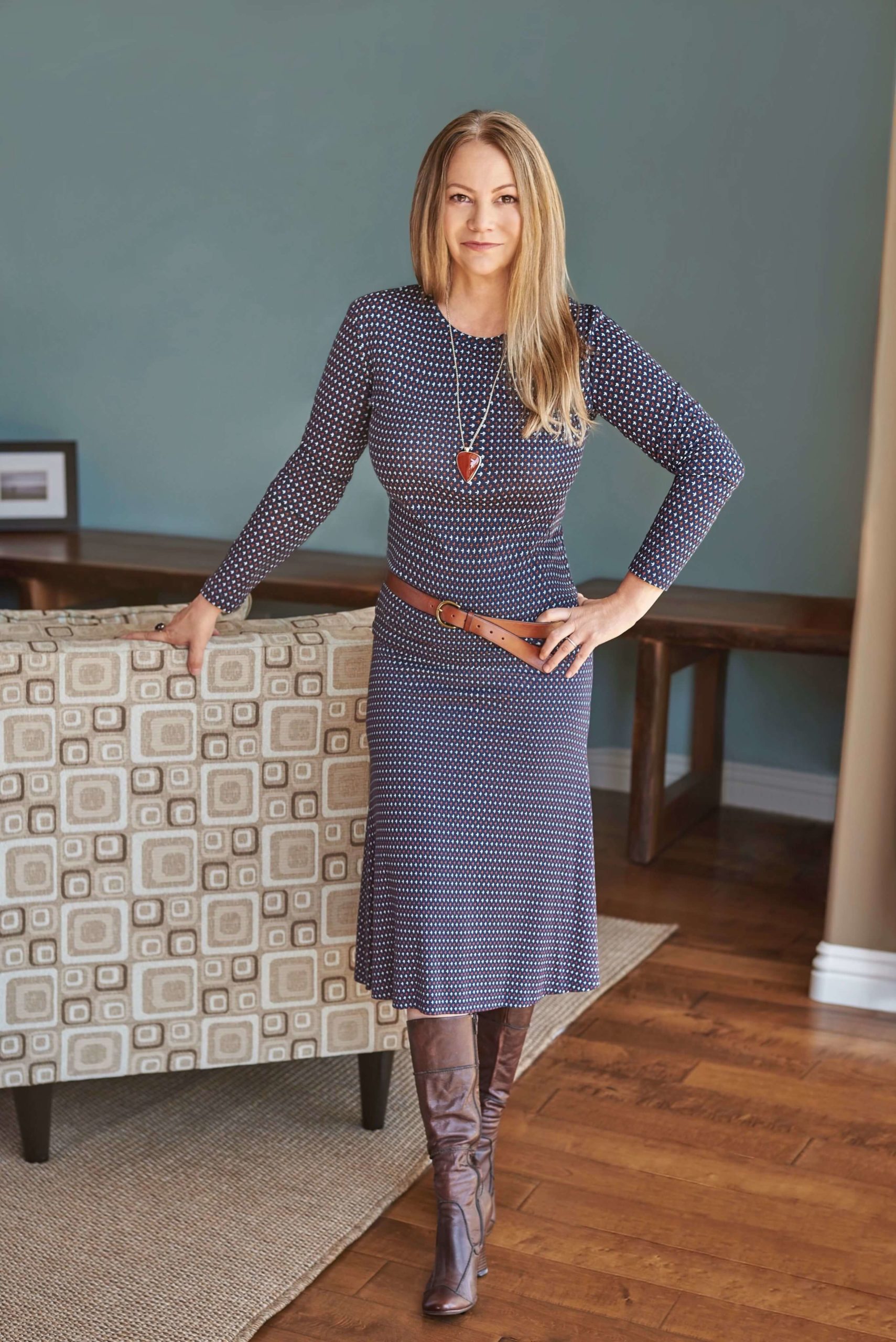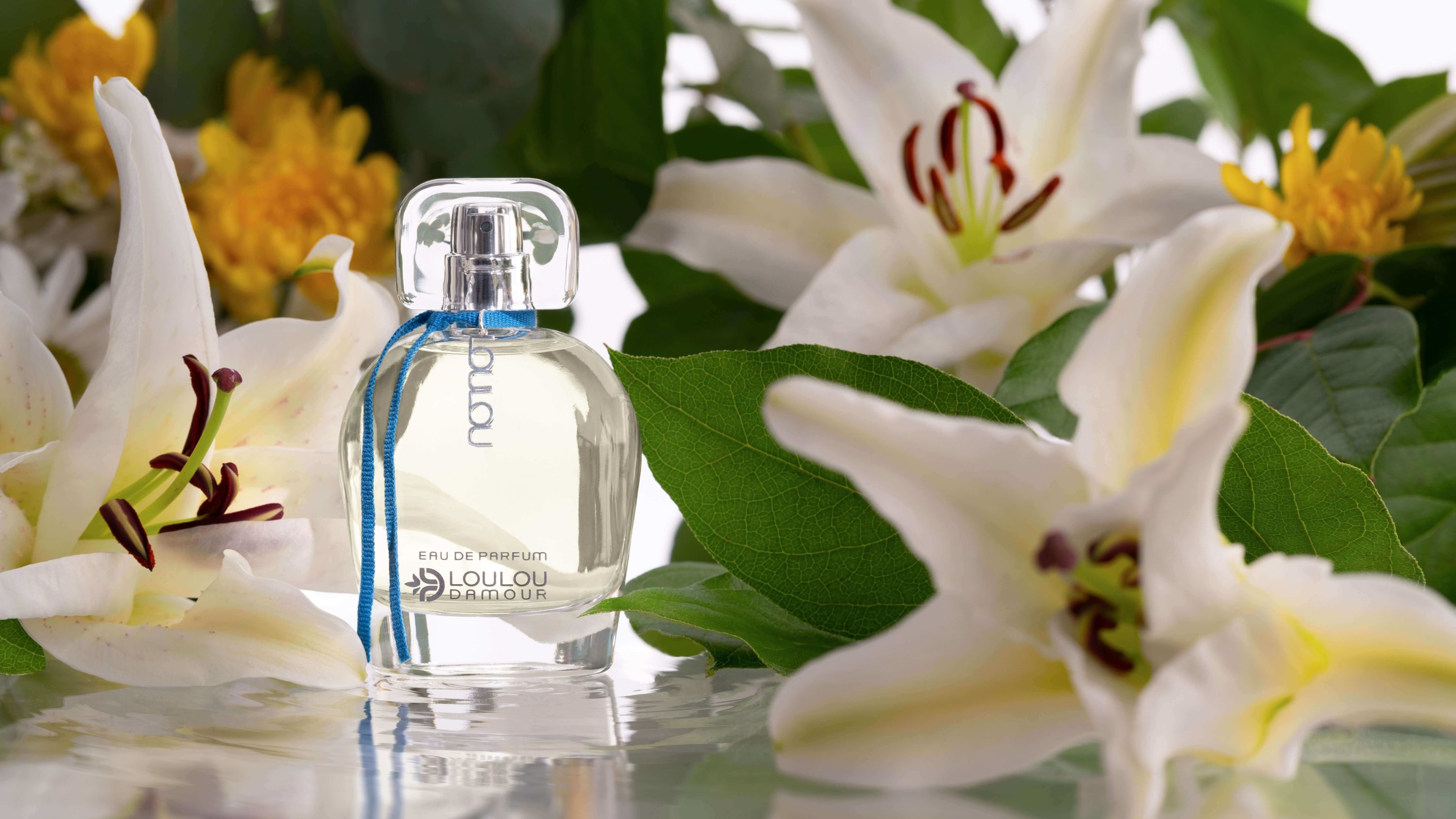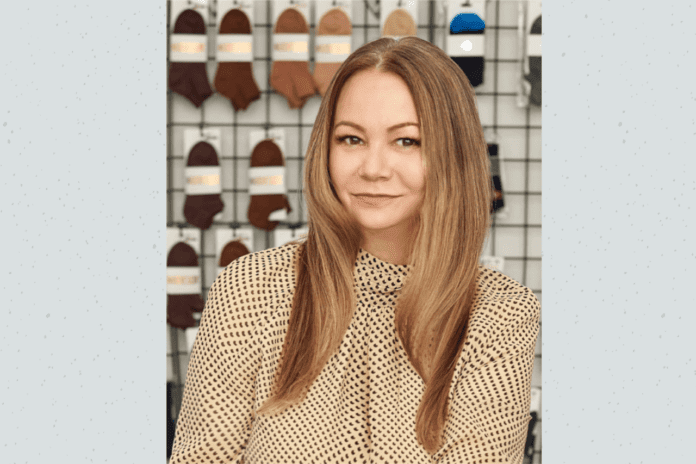As a part of the Morning Lazziness series about empowering women who are encouraging and doing incredible things with their ideas in society, I had the pleasure of interviewing Zee Field, Founder of LOULOU DAMOUR.
LOULOU DAMOUR is a woman-owned, French-inspired upscale fashion and fragrance brand. In French, “Mon loulou d’amour” is how you refer to someone very dear to your heart. Your loulou can be your support system, your muse, someone who inspires you to push past limitations and follow your passion. LOULOU DAMOUR clothing and perfumes are designed with memories of a special person, place or time to honor the loulous of our lives. LOULOU DAMOUR has committed itself to sustainable business practices such as using waterless dyes and organic paper and plastic in their clothing as well as recyclable materials in their packaging.
Thank you so much for joining us in this interview series! Our readers would love to “get to know you” better. Can you share your company story with us?
Profade Apparel was started in 2011 as a company that does development and production for new and established brands. The company handles everything from concept development to production and delivery of the final product to the customer.
After having many success stories for other brands, I developed my own brand LOULOU DAMOUR, in 2017. This is a lifestyle brand for women and includes timeless styles and fragrance, both developed at the world-renowned Galimard Parfums in Grasse France.
When and how did it all begin?
My journey into the fashion world began back when I was a teenager playing guitar, and singing at a local cabaret in Paris such as Le Pied de la Butte, which means foot of the hill. It was really the foot of the hill of Montmartre where the more famous Moulin Rouge is located. I would also do other odd jobs like being a magician’s assistant, photographer, or any other odd job that others didn’t want because of the low pay.
My mother had taught my three sisters and me everything about making a garment from creating patterns to sewing and knitting. I am from a family of nine children, so we made most of the clothing for the family growing up. My mom was known as a “petite hand” in the 1960s fashion industry in Paris at the time of Coco Chanel’s rise to fame.
I was introduced to a businessman who had a group of lingerie stores in Paris. This led to my first contract making a women’s lingerie collection. I can’t say it was a huge success, but it opened my eyes to new opportunities in the world of fashion.
From Paris, it was on to Montreal as I always wanted to explore other countries, so I decided to go to Canada where I initially worked as a backup singer one summer. I lived there for over twenty years.
At first, I would also again do odd jobs to make enough to survive. I even cleaned fish in the fish market as one of my odd jobs. Out of all the odd jobs I did, I found a passion for fashion and began to focus my attention on contracts in the fashion industry.
Eventually, with enough experience, I was offered more permanent contracts with growing private label companies as a designer but also, in development and production.
Pretty quickly I got more responsibilities to the point, to my own surprise, I really enjoyed being in business.
My journey has taken me from high fashion brands like “Votre Nom Paris” to Walmart. All brands have their own challenges, and the more experiences the better.
What sparked your interest in fashion?

Fashion is a multifaceted business if you are involved at every stage of it. I like that you must wear many different hats. You must be creative and organized on the manufacturing side and business savvy. Now with today’s markets, I would add that you have to be proficient in social media and “digital tech ready” as well. Basically, to do it well you need to be a Swiss army knife with all sorts of edges. You also need to evolve with the quick and ever-changing trends. Having worked in the worldwide factories at the beginning of my career to learn all aspects of the production, I also developed close lifelong relationships with the workers who some have become factory owners. I feel an allegiance to them to continue to provide enough orders to keep their businesses flourishing.
What challenges did you face at the start of your business?
Money and time and then more time and more money. LOL.
There is no overnight success. Most people are working in the dark for years, as it is impossible to know every roadblock until you come upon them. You also need to realize what you know and don’t know and vet trustworthy employees or consultants to help develop an understanding and working knowledge of the areas that you might not be proficient at. It is not that easy to delegate but you must learn to do so.
Can you share a story about the funniest mistake you made when you were first starting?
I had recently arrived in Montreal and from my small music network, I met a businessman Claude Perron who was a good friend of a young new French singer at the time by the name of Celine Dion. He gave me a contact of an assistant buyer who needed 5000 pins for a jazz festival. 45 days later, I was ready with this “huge” order of 5000 pins to ship to the warehouse.
I rented a haul truck and a lift and arrived at the button manufacturer with my helpers to pick up the order, which was 1.5lbs and could have fit in a large shoebox. It was a great lesson that the process didn’t end at designing and that shipping and forwarding were just as important in the process
Is it tough for a woman to survive in this industry?

It can be, especially when you are coming from a different country with an accent. Sometimes people confuse these features for inexperience and lack of knowledge, which is not often the case. Even coming to the US with over 30 years of experience creating an obstacle at first. It is much better now than it was decades ago. The general population got the memo by now. Women can be pretty good in business. Whether you are a man or a woman, the challenges of starting a new business can be difficult
How did you overcome those panic attacks?
Where did you hear that? It never happens… LOL
Well… If you are in business, at times you can experience those… panic attacks. But I truly think they come from exhaustion more than fear. At some point you have enough experience to handle any situation. With experience and knowledge about every facet of your business comes confidence and peace of mind. Running your own business is hard work, very hard work. There are many details to handle at once and many hats to wear.
Has the pandemic affected your business, and what have you learned from it?
Of course, it affected everyone on the planet. Honestly, I thought we, as a business, won’t be able to survive that year. We adapted and to bridge the gap even produced medical gear for the first year of the pandemic. We also had the benefit of a network of factories around the world so when part of the world was shutting down production, we could move to other areas to keep production going. Because of flexibility, we were able to flourish during the pandemic whereas other companies locked into production just in one area or one factory may have been affected more.
If you were not in fashion, what would you want to be?
I tried twice in my lifetime to do something else… And, sure enough, I went back to fashion. So, I would be a singer and then a music producer. Or an actor and then a movie director.
I cannot separate the creativity side from the business side. Being in business is not just about making a profit. The truth is, I love what I do, and I think this is exactly what I was meant to do.
Share your best 5 tips that you give to every fashion brand, and why?

- You must have a vision – A vision is how LOULOU DAMOUR was created. I have been thinking for years about creating my own brand as a designer; I was just waiting for a meaning to resonate.
- Get experience – Learn everything about YOUR business. Therefore, I even went overseas to work in the factories at the beginning of my career so I would know everything from A to Z about production. Get as much experience as you can, no matter the pay, for the first five years at least. Learn about different categories of clothing, materials, and gender. Understand the technical, mechanical, and business aspects of fashion, not only the design side of it. Even if you don’t become an expert in each department, make sure to know enough to answer questions, and/or to be able to “do it yourself.” It also helps to appreciate your team members for the work they do. In my 20s, I was so afraid of not having a job even for a week that I started doing freelancing, getting my hands on a variety of projects, and learning from people in different positions, in design, production, management, sales, and shipping. Also, learn to deal with problems head-on.
- Networking – Start building connections and working with other individuals, co-workers, or factory world partners. When we work together, we are stronger and better. This is how you build a trustworthy network.
- Listen – Be flexible to listen to enough people with more experience. I try my best to nurture my relationships by keeping my promises, being transparent, and keeping communication open with the staff, vendors, and clients I work with.
- Organization – Time management is key for all businesses. It is important to implement an efficient yet simple system, keeping records of samples and documents. I highly recommend working on progress logs. It is important to be demanding and detail-oriented.
For me, it took a few years to finally find an efficient system to handle so many accounts, development, and orders at once that is also understandable to the entire company, not just for me.
Bonus answer:
Marketing – Be open to the many new ways of getting a brand noticed. Having a marketing plan and budget in place is key to growing your business.
For me, it was about finding the right partners for social media and PR. Experienced, super-nice, and motivated people who genuinely care for what they do. Thank you RAGDOLL PR.
What makes you different from other Fashion Companies?
I have first-hand experience in every facet of the business for 35 years. There probably aren’t too many companies where the salesperson is also a designer who worked in the factory physically making the garment as well. Also, my commitment to my clients. Be honest, have open communication, and get them the best-finished product for their budget.
What are the “myths” that you would like to dispel about being a founder? Can you explain what you mean?
The founder in the fashion industry is sometimes just the face of the franchise. This myth may have been potentiated by the trend of celebrities starting their own fashion lines. When you truly start from the ground up with no backing, the founder is the jack-of-all-trades at the beginning. Not all parts of the job are glamorous.
What is the biggest sacrifice you’ve made in starting or running your business?
You must commit 1000% to your business. There are no weekends or vacations; a day off occasionally, but I rarely go a day without opening the laptop or the cameras at the office. It is like having a child, you need to make sure he is okay. Luckily, if you do what you love, it does not feel like working. Each season, your business goes to the next level as you must adjust to it as well as it grows.
What’s one quote you live by?
“Do it well. Or don’t do it at all”
Lastly, what do you think this world needs the most?
I am so glad you ask this question.
We need more love, laughter, and respect from one another. I think what is going on in the USA and around the world for the past few years with the hatred, violence, and negative political discourse is counterproductive to a healthy society where we can all live in harmony. You could imagine that, after dealing with the last pandemic, the understanding of what is truly important would be more obvious to everyone.


